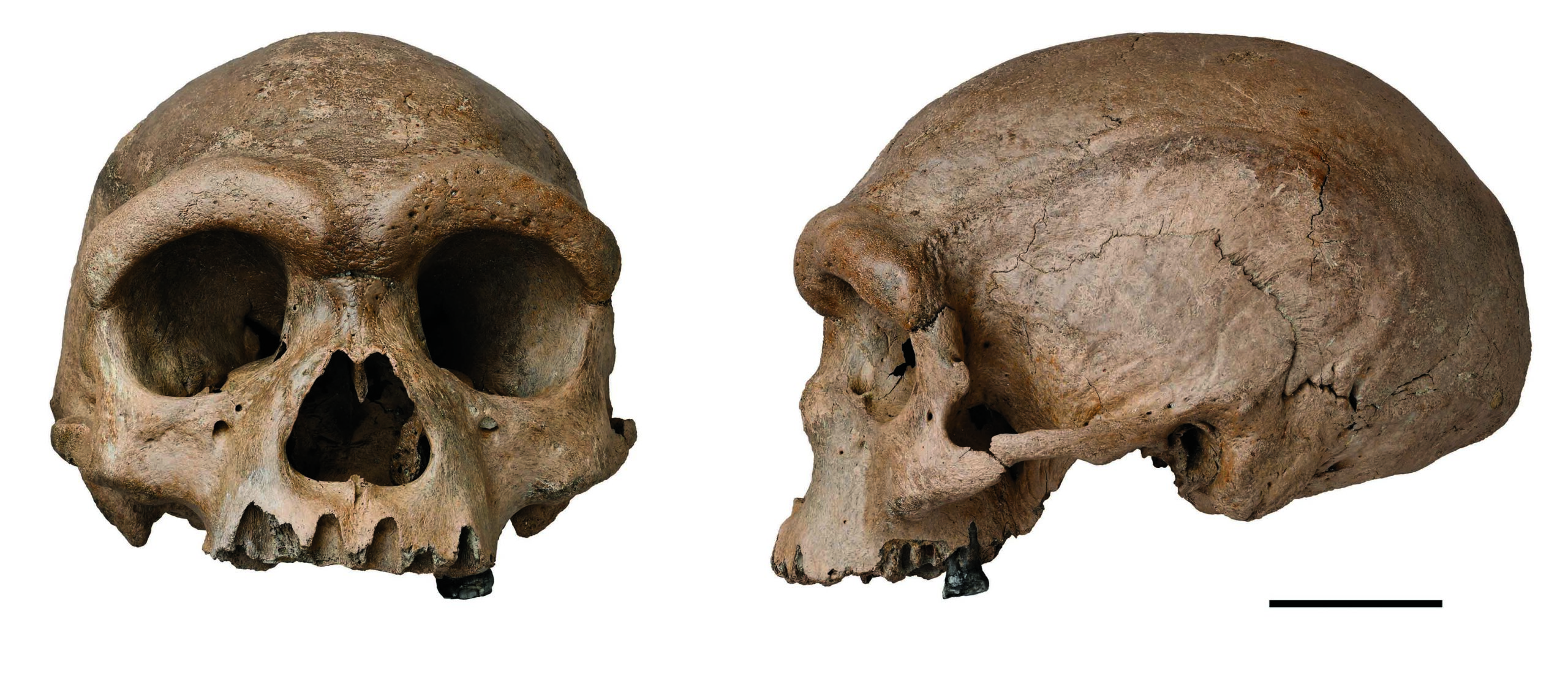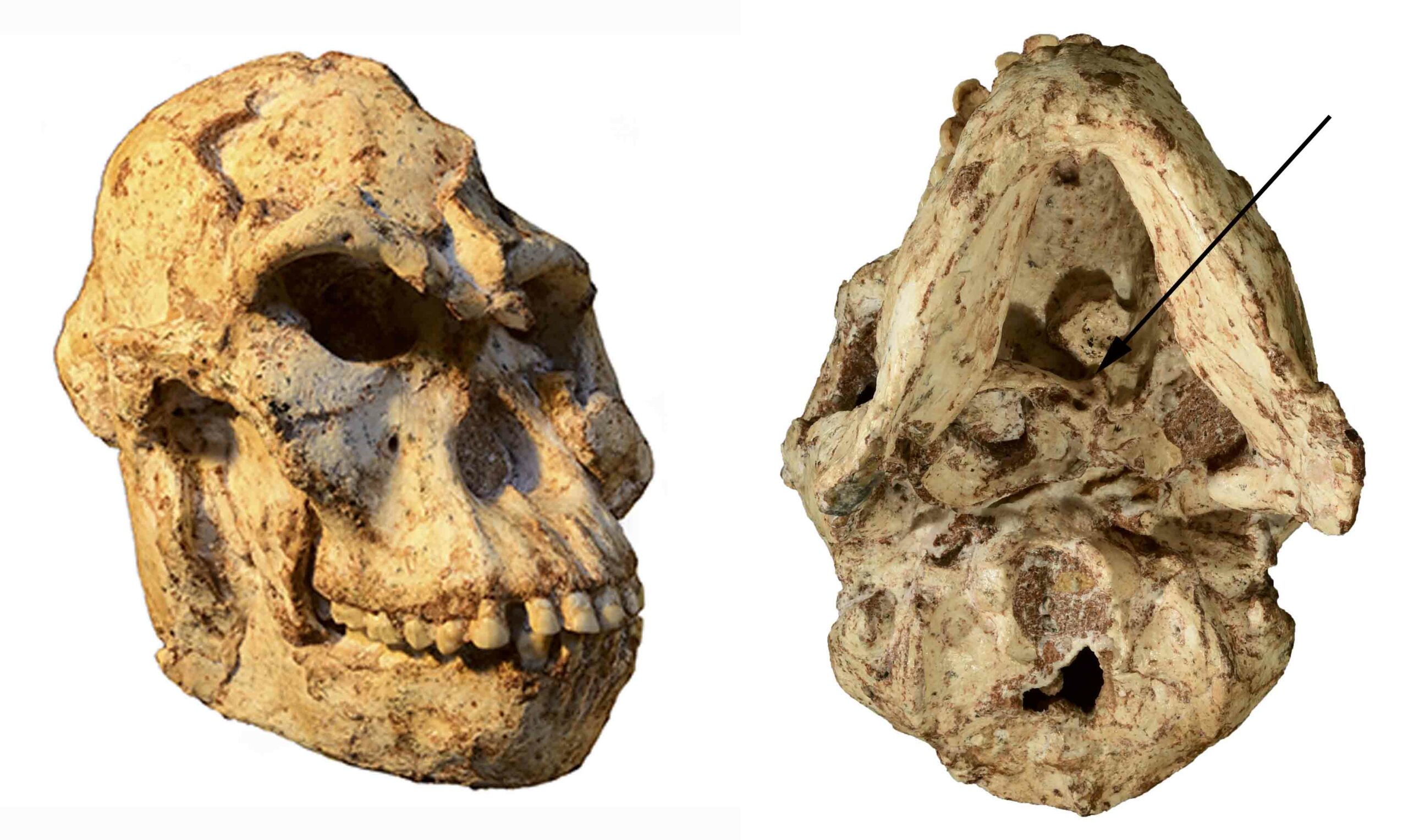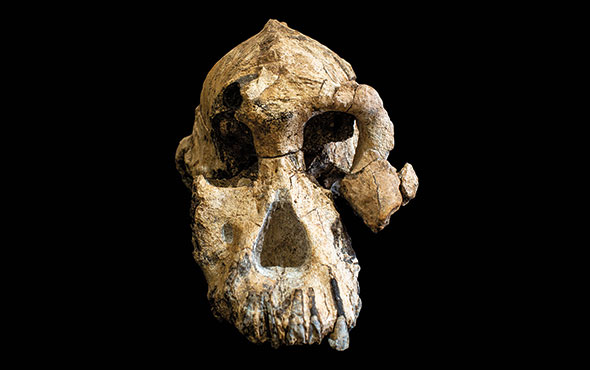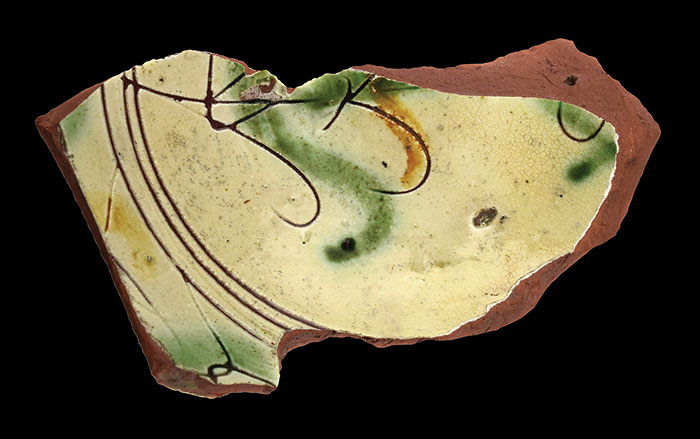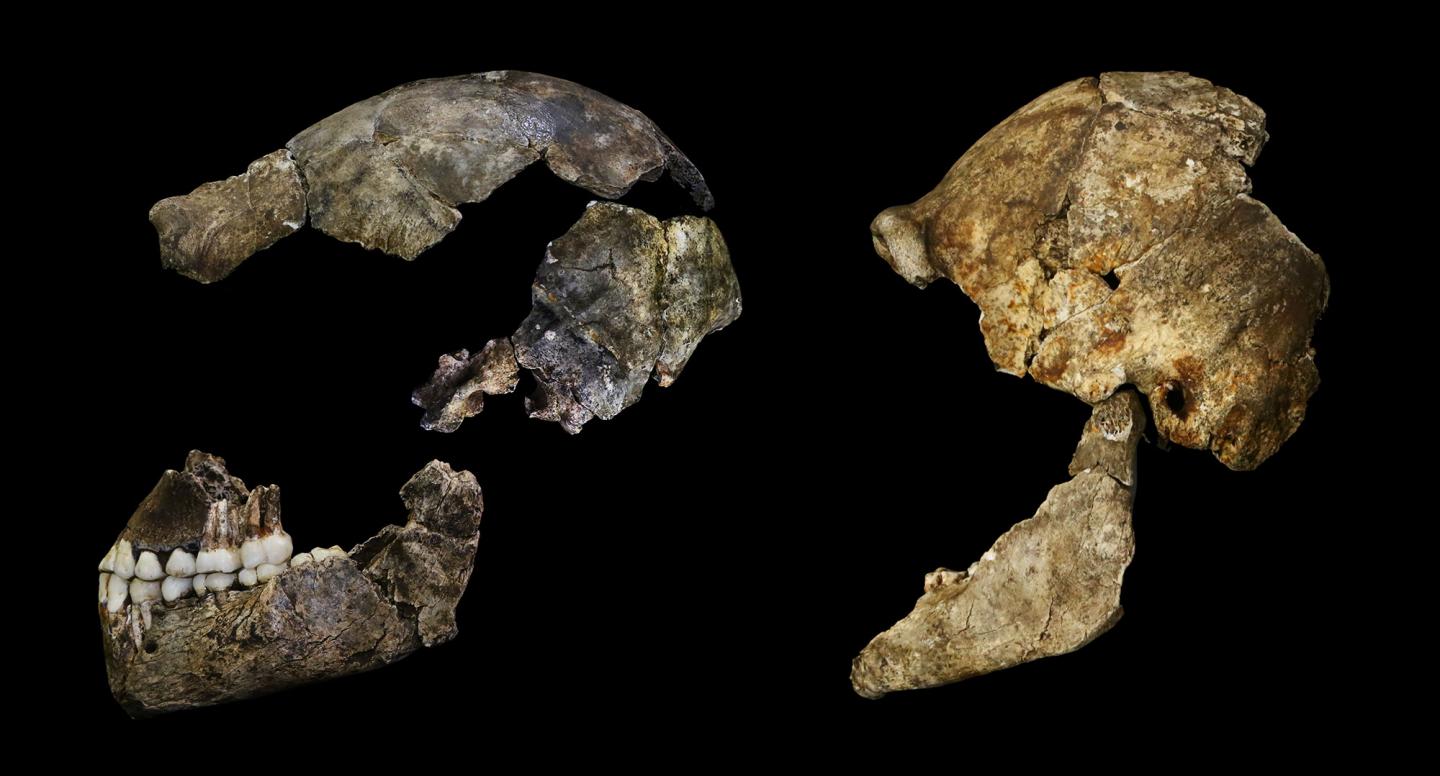
JOHANNESBURG, SOUTH AFRICA—According to a report in The Independent, a new study suggests that Homo naledi, a hominin that lived between 236,000 and 335,000 years ago, may have been highly intelligent. Its fossils, discovered in a cave in South Africa in 2015, exhibit a mix of primitive and advanced characteristics, including a small brain about the size of an orange, hands that may have been able to make tools, and small feet. In addition, the fossils were recovered from a hard-to-reach cave chamber, which suggests Homo naledi may have engaged in complex behaviors such as deliberate disposal of the dead. Lee Berger of the University of the Witwatersrand and Ralph Holloway of Columbia University pieced together Homo naledi skull fragments and created a digital reconstruction of skull interiors, in order to learn more about the creatures’ brains. The scans showed complexity in areas of the Homo naledi brains linked to emotions in modern humans, and a large frontal lobe, an area associated with language. “Here we have a violation of that sacred cow—the idea there was this link between ever-increasing brain size paralleled with ever-increasing complexity,” Berger said. To read about the discovery of Homo naledi fossils, go to “A New Human Relative.”



